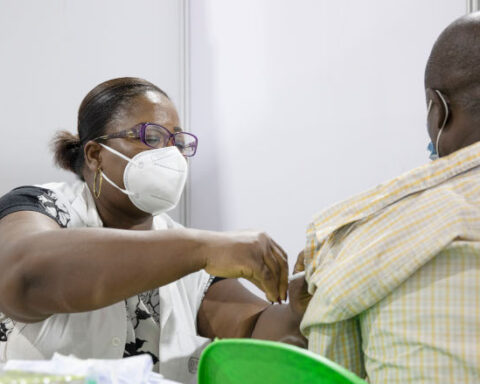Millions devasted in Yemen
He expressed his extreme concern over the situation in Yemen, where six years of war have “devastated the lives of millions” and undermined regional confidence.
While more than 1,000 prisoners were released last week in what he called “a ray of hope”, Mr. Guterres underscored that “the security situation remains fragile”.
Over recent weeks, the conflict has escalated in Al Jawf, Ma’rib and Hudaydah governorates, with the latter being of significant concern as it risks undermining the 2018 Stockholm Agreement, the historic but fragile UN-brokered accord between the internationally-recognized Government and the Houthis, who are fighting for control of the country.
At the same time, Yemen remains the largest humanitarian emergency where looming famine is compounded further by the continued spread of COVID-19.

The top UN official called the conflict a reminder that “urgent and immediate regional challenges” must be addressed, to stem “farther and wider” instability.
“We need an immediate ceasefire and return to the negotiating table to work out a political settlement to end the war”, spelled out the UN chief. “Nothing less will suffice”.
Pandemic respects no borders
Recalling his appeal for “an immediate global ceasefire to focus on the one true fight: the battle against the COVID-19 pandemic”, the UN chief reiterated the need to step up efforts.
“The clock is ticking – and people are dying”, he attested.
Mr. Guterres commended the Gulf countries that supported his call and urged others to rise “in a spirit of solidarity” to “waive any sanctions” blocking access to vital humanitarian and medical assistance amid the pandemic.
High tensions, low confidence
He pointed to numerous security incidents since May 2019 that have heightened frictions to “new levels” and noted that they have served to underscore the urgent need to “work collectively to lower tension and prevent conflict”.
Looking at the wider Persian Gulf region, the UN chief said, “it is clear that tensions are running high. Confidence is low”.
“These are a stark reminder that any miscalculation could quickly escalate”, said the Secretary-General.
De-escalation needed
According to Mr. Guterres, the first step towards de-escalation is to identify “viable confidence-building measures” to address issues of mutual concern.






